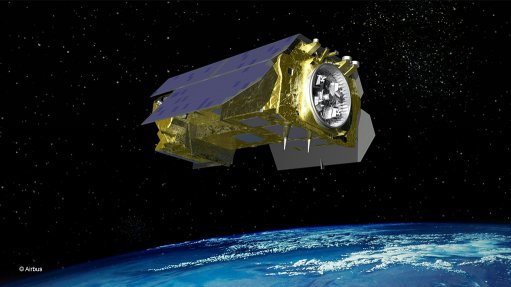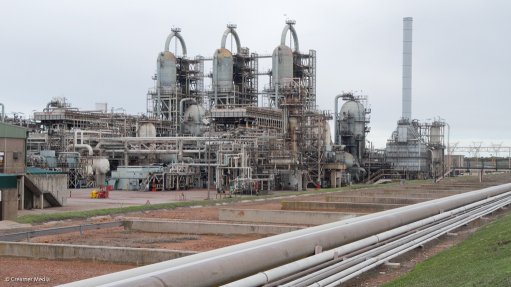Trade misinvoicing: one of the dark sides of international trade
One of the few movie franchises that made a lasting impression on me has each movie or episode opening with the static blue text, “A long time ago in a galaxy far, far away …”, followed by the franchise’s logo, shrinking in front, and, as it starts retreating, the ‘crawl’ text begins. It is a fictional universe where, in the original trilogy, Darth Vader, also known as Anakin Skywalker (he of “Luke, I am your father” fame), is the pivotal figure whose actions drive the plot – the story of his corruption. “Come to the dark side” – I recall Vader extending this invitation on numerous occasions. I had to smile recently when I saw a child wearing a T-shirt with “Come to the dark side, we have cookies” emblazoned across the chest.
Similar to the fictional universe that is Star Wars, international trade has a dark side; arguably, it has multiple dark sides. The most troubling is trade misinvoicing. (If you are creative and considering creating Sars Wars, you will do so at your own peril, as this is the name of a 2004 Thai horror-comedy film that is subtitled Bangkok Zombie Crisis.)
But I digress. To understand what is meant by trade misinvoicing, you need to first understand what an invoice is. It is a commercial document that, quite simply, indicates the amount due by the buyer or importer to the seller or exporter. Where misinvoicing occurs, the amount paid might be higher or lower than the amount indicated on the invoice.
Trade misinvoicing can occur in two ways: underinvoicing by exporters and overinvoicing by importers. Underinvoicing by exporters occurs where a firm, for example, is interested in moving capital (money) out of a country. In such an instance, the exporter would underinvoice its exports, which results in reduced foreign exchange being brought into the country, with the remainder kept in the country to which goods would have been exported. In other words, the portion of the foreign exchange that is not remitted is kept offshore. Overinvoicing by importers, on the other hand, occurs where a firm is, for example, interested in moving money out of a country. The importer overinvoices its imports, with the exporter paid an amount that is lower than the amount indicated on the invoice, with the remainder retained by the importer in an overseas account.
Global Financial Integrity (GFI) defines trade misinvoicing as a method for moving money illicitly across international borders, which involves the deliberate misreporting of the value of a commercial transaction on an invoice submitted to customs. GFI adds that trade misinvoicing is a form of trade-based money laundering and that it is the largest component of illicit financial outflows that it measures. Ironically, as countries attempt to process customs transactions quickly in order to promote trade (trade facilitation) and boost economic growth, trade misinvoicing has become a fairly low-risk endeavour for criminals, especially those – according to GFI – who only moderately misinvoice their transactions by between 5% to 10%.
What are the reasons for employing (read perpetrating) trade misinvoicing? According to GFI, there are four primary reasons for resorting to trade misinvoicing. The first is money laundering, where the perpetrators may seek to launder the proceeds of crime or corruption. The second is directly evading taxes and customs duties through the underreporting of the value of goods. Thirdly, companies involved in international trade may resort to trade misinvoicing in order to claim the generous tax incentives that many countries offer domestic exporters selling their goods and services abroad. Finally, perpetrators of trade misinvoicing do so to dodge capital controls, as many countries, particularly developing countries, have restrictions on the amount of money that a person or firm may bring into or take out of the country.
Just a word of caution – tax avoidance by multinational companies, which tend to pursue aggressive tax avoidance schemes, does not necessarily equate to trade mis- invoicing. Although this practice by multi- nationals might at first glance appear as trade misinvoicing, it should be carefully investigated, as it could well fall within the realm of transfer pricing and/or customs valuation.
One of the obvious, but generally unappreciated, tools that can be employed to identify price misinvoicing is price statistics. This is a field of study which I am very passionate about, but I have collected far more than my fair share of scaring in trying to convince others of its usefulness. Part of its usefulness is that it makes it possible to detect anomalies in trade statistics.
GFI cites three main generic reasons for anomalies in trade statistics. The first is deliberate manipulation to facilitate illicit financial flows. The second is genuine data errors. (You would recall that, in trade statistics, the customs authority records the transactions of individual importers and exporters, which then tend to be aggregated and reported to the United Nations system.) The third reason are differences in the rules of reporting followed. Most commonly, exporting countries identify the immediate destination country, but final importing countries identify the original exporter. As an example, South Africa may export to the UK through Morocco, and the transaction may be recorded in South Africa as exports to Morocco, but in the UK it may be recorded as imports from Morocco, resulting in an apparent anomaly in UK-Morocco trade, despite there being no illicit component at all.
The issue of price misinvoicing is highly topical at the moment. You might recall that, a few weeks ago, the United Nations Conference on Trade and Development published a report titled ‘Trade Misinvoicing in Primary Commodities in Developing Countries: The Cases of Chile, Côte d’Ivoire, Nigeria, South Africa and Zambia’. It solicited immediate, and quite angry, responses from several quarters in South Africa. It even prompted the Tax Justice Network to write an article titled ‘Finally, trade misinvoicing gets political’, which was published on August 2.
It is apparent that definitive action is required to address trade misinvoicing, the most obvious being the constant analysis of trade statistics. This must be done. As Luke Skywalker says to Yoda, “All right, I’ll give it a try.” Responding, with some agitation, Yoda says: “No. Try not. Do . . . or do not. There is no try.” And Vader reminds: “You underestimate the power of the dark side.”
Comments
Announcements
What's On
Subscribe to improve your user experience...
Option 1 (equivalent of R125 a month):
Receive a weekly copy of Creamer Media's Engineering News & Mining Weekly magazine
(print copy for those in South Africa and e-magazine for those outside of South Africa)
Receive daily email newsletters
Access to full search results
Access archive of magazine back copies
Access to Projects in Progress
Access to ONE Research Report of your choice in PDF format
Option 2 (equivalent of R375 a month):
All benefits from Option 1
PLUS
Access to Creamer Media's Research Channel Africa for ALL Research Reports, in PDF format, on various industrial and mining sectors
including Electricity; Water; Energy Transition; Hydrogen; Roads, Rail and Ports; Coal; Gold; Platinum; Battery Metals; etc.
Already a subscriber?
Forgotten your password?
Receive weekly copy of Creamer Media's Engineering News & Mining Weekly magazine (print copy for those in South Africa and e-magazine for those outside of South Africa)
➕
Recieve daily email newsletters
➕
Access to full search results
➕
Access archive of magazine back copies
➕
Access to Projects in Progress
➕
Access to ONE Research Report of your choice in PDF format
RESEARCH CHANNEL AFRICA
R4500 (equivalent of R375 a month)
SUBSCRIBEAll benefits from Option 1
➕
Access to Creamer Media's Research Channel Africa for ALL Research Reports on various industrial and mining sectors, in PDF format, including on:
Electricity
➕
Water
➕
Energy Transition
➕
Hydrogen
➕
Roads, Rail and Ports
➕
Coal
➕
Gold
➕
Platinum
➕
Battery Metals
➕
etc.
Receive all benefits from Option 1 or Option 2 delivered to numerous people at your company
➕
Multiple User names and Passwords for simultaneous log-ins
➕
Intranet integration access to all in your organisation


















